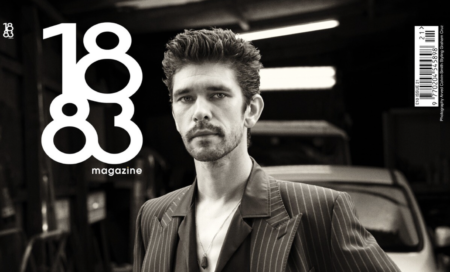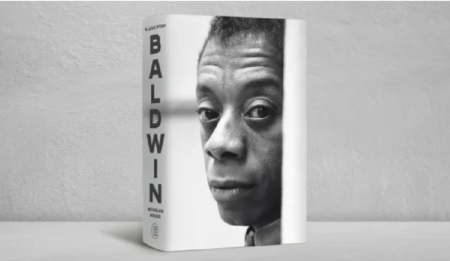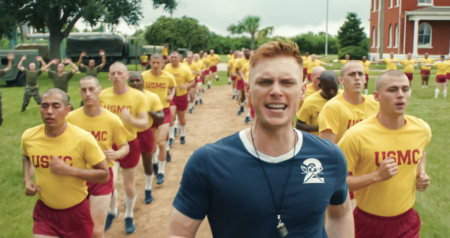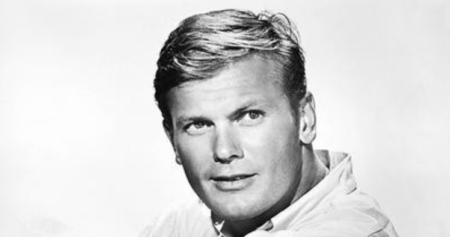Exploring the turbulent ties between literary creators and their film counterparts.
Where would Hollywood be without book-to-screen adaptations?
Directors and showrunners have long mined literature for inspiration, delving into a treasure trove of enduring classics, popular mysteries, and contemporary bestsellers. This symbiosis between page and screen has produced numerous hits over the past decade, including titles like Daisy Jones & The Six, Normal People, The Underground Railroad, Game of Thrones, Call Me By Your Name, and The Personal History of David Copperfield.
However, the journey from book to film is not always smooth. A recent example highlighting the complexities of this process is Blake Lively’s adaptation of Colleen Hoover’s It Ends With Us. Despite Colleen Hoover’s approval, saying the team did “such a good job condensing this book into a film,” the project has drawn significant criticism. These waters are even more tumultuous for other authors whose works have not seamlessly transitioned to film.
Breakfast at Tiffany’s – Truman Capote
Truman Capote’s Breakfast at Tiffany’s was transformed into a film that won two Oscars and received three additional nominations. Despite its success, Capote was dissatisfied, particularly with the casting of Audrey Hepburn as Holly Golightly. Capote had envisioned Marilyn Monroe for the role and felt betrayed by Paramount Pictures. “Oh god, just everything,” Capote lamented, criticizing the film for missing the nuances and altering the story’s ending to make it a romance.
Sister Act – Paul Rudnick
Paul Rudnick, who wrote Sister Act, was similarly discontented. Criticising Disney for morphing his script beyond recognition, Rudnick stated, “By the time the Disney people got through my original script, it formed very little resemblance to what I intended.” As a result, he opted to use a pseudonym in the credits: Joseph Howard.
The Shining – Stephen King
Stephen King’s relationship with Stanley Kubrick’s 1980 adaptation of The Shining is one of the more famous authorial discontents. King took issue with Jack Nicholson’s portrayal of Jack Torrance, arguing that the character lacked depth. “In the book, he’s a guy who’s struggling with his sanity and finally loses it. To me, that’s a tragedy. In the movie, there’s no tragedy because there’s no real change,” King remarked.
The Neverending Story – Michael Ende
Michael Ende was vehemently against the 1984 film adaptation of his children’s novel The Neverending Story. He described it as a “revolting movie” and sought to remove his name from the credits. “The makers of the film simply did not understand the book at all. They just wanted to make money,” Ende asserted.
One Flew Over the Cuckoo’s Nest – Ken Kesey
Despite Milos Forman’s One Flew Over the Cuckoo’s Nest winning multiple Oscars, author Ken Kesey was displeased, mainly due to the exclusion of Chief Bromden, the book’s main narrator. Kesey found the filmmakers’ alterations so disappointing that he sued the studio for breaking their verbal agreement, a standpoint he supposedly held without even watching the film.
V For Vendetta, Watchmen, The League of Extraordinary Gentlemen – Alan Moore
Alan Moore, writer of the graphic novels adapted into V For Vendetta, Watchmen, and The League of Extraordinary Gentlemen, expressed disdain for all these adaptations. He described V For Vendetta as “a Bush-era parable by people too timid to set a political satire in their own country” and felt his works were “knowingly stolen” from him.
Mary Poppins – PL Travers
PL Travers’ disdain for the 1964 Disney adaptation of her book Mary Poppins is well-documented. Travers felt the film was too sentimental and took particular issue with the characterisation of Ms Banks as a suffragette. Her discontent was so significant that it became the subject of the 2013 film Saving Mr. Banks, starring Emma Thompson.
Natural Born Killers – Quentin Tarantino
Quentin Tarantino overtly criticised Oliver Stone’s direction of Natural Born Killers. Complaining that Stone deviated from his original script by focusing on Mickey and Mallory Knox over the broadcaster Wayne Gayle, Tarantino recommended fans of his work to “not watch that movie.”
Percy Jackson – Rick Riordan
Rick Riordan was vocal about his dissatisfaction with the Percy Jackson film adaptations. Riordan criticised the decision to age up the characters, stating it “kills any possibility of a movie franchise” similar to Harry Potter. He bluntly called the script “terrible.”
Cool Hand Luke – Donn Pearce
Although Donn Pearce co-wrote the screenplay for Cool Hand Luke, the film’s most iconic line—”What we’ve got here is a failure to communicate”—was despised by Pearce. He felt it didn’t fit the authenticity of his vision, which was informed by his own experiences.
A Clockwork Orange – Anthony Burgess
Anthony Burgess initially liked Stanley Kubrick’s adaptation of A Clockwork Orange but later grew dissatisfied. He disapproved of Kubrick’s decision to omit the book’s final chapter, which offered a redemptive ending for the protagonist, and also felt inadequately compensated.
Willy Wonka & the Chocolate Factory – Roald Dahl
Roald Dahl was displeased with the 1971 adaptation of Willy Wonka & the Chocolate Factory, especially with Gene Wilder’s portrayal of Willy Wonka. Dahl thought Wilder was too soft and didn’t capture the complexity he envisaged for the character.
American Psycho – Bret Easton Ellis
Bret Easton Ellis found the film adaptation of American Psycho “fine,” though he believed his novel was inherently unadaptable due to its emphasis on internal consciousness. He felt the essence of his book could not be captured on film effectively.
I Am Legend – Richard Matheson
Richard Matheson’s seminal work I Am Legend has seen four film adaptations, none of which satisfied the author. After the 2007 adaptation starring Will Smith, Matheson stated, “I don’t know why Hollywood is fascinated by my book when they never care to film it as I wrote it.”
Charlotte’s Web – EB White
EB White was critical of the film adaptation of Charlotte’s Web, particularly because of the frequent interruptions for musical numbers. He found the final product a “travesty” and felt it undermined the story’s depth.
My Foolish Heart – JD Salinger
JD Salinger’s adverse reaction to the 1949 adaptation of his short story Uncle Wiggily in Connecticut, titled My Foolish Heart, led him to reject any future adaptations of his works, including The Catcher in the Rye.
I Know What You Did Last Summer – Lois Duncan
Lois Duncan was deeply disturbed by the film adaptation of her thriller I Know What You Did Last Summer, which turned into a slasher contrary to the book’s intention. Duncan found this particularly distressing given her personal tragedy—the unsolved murder of her daughter.
















